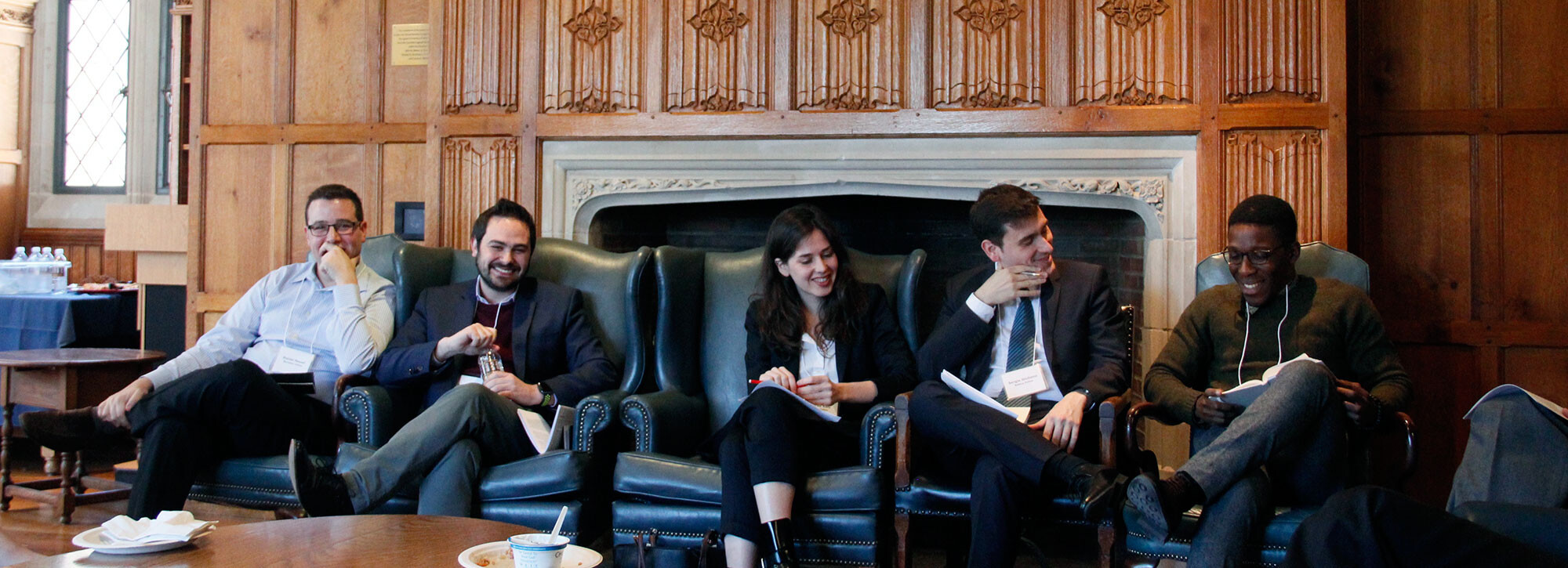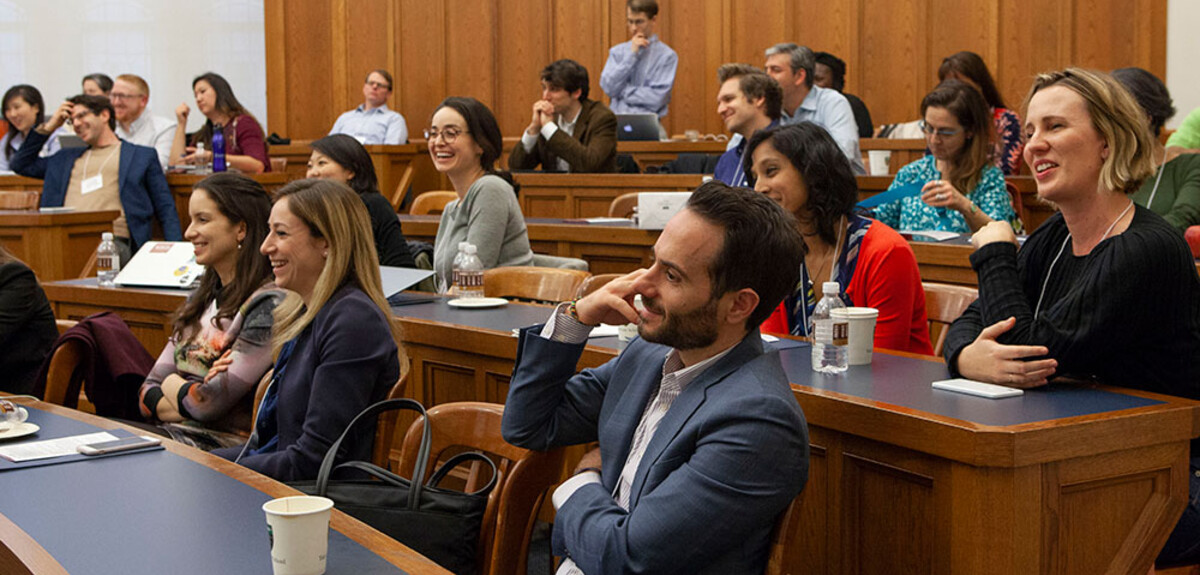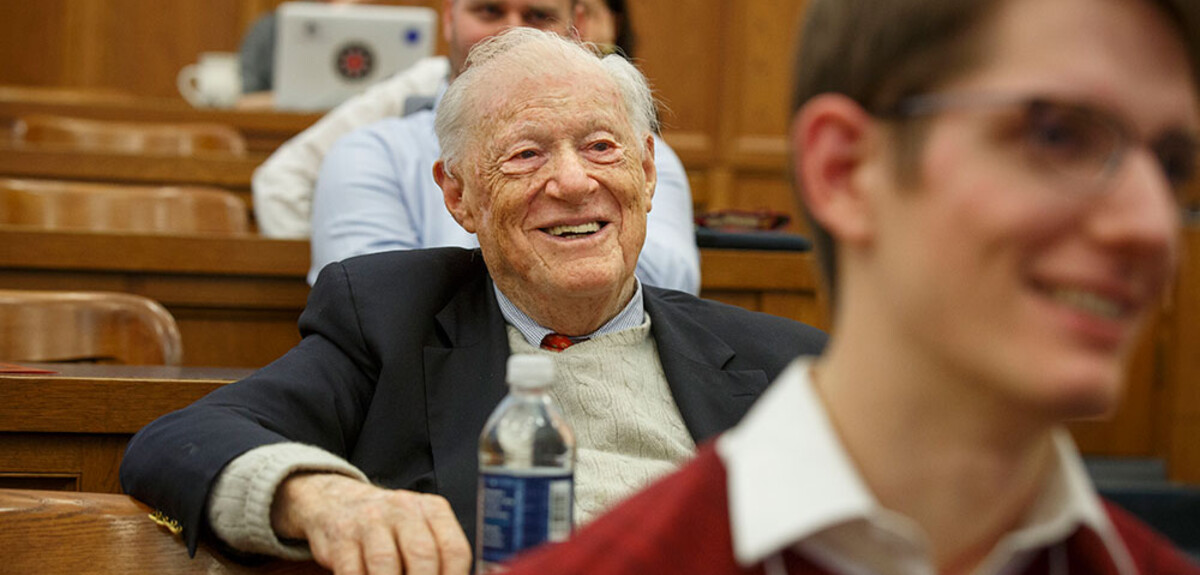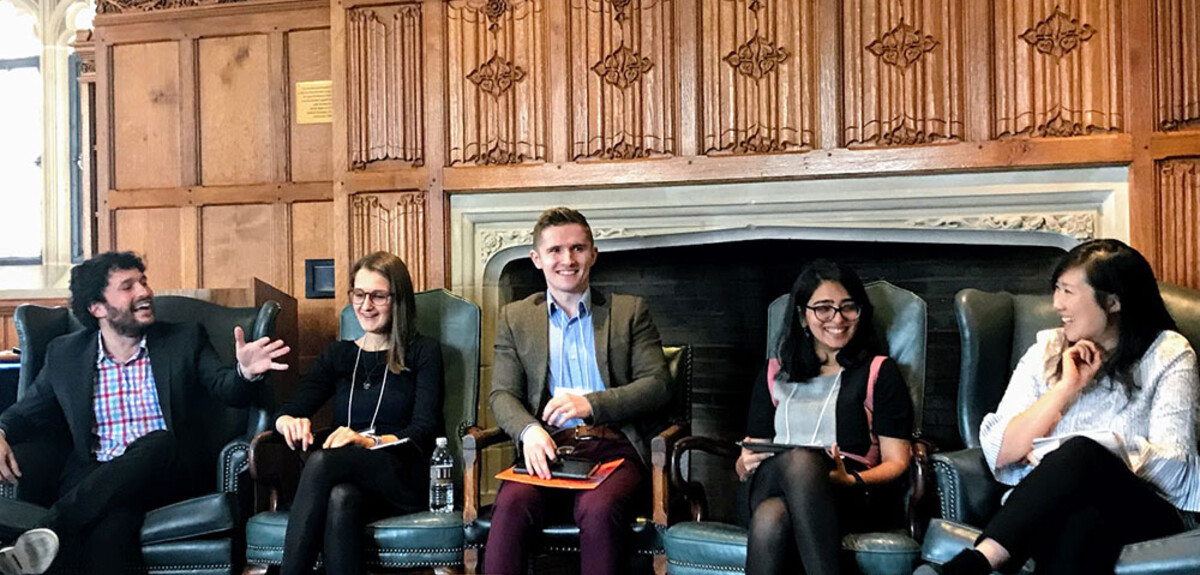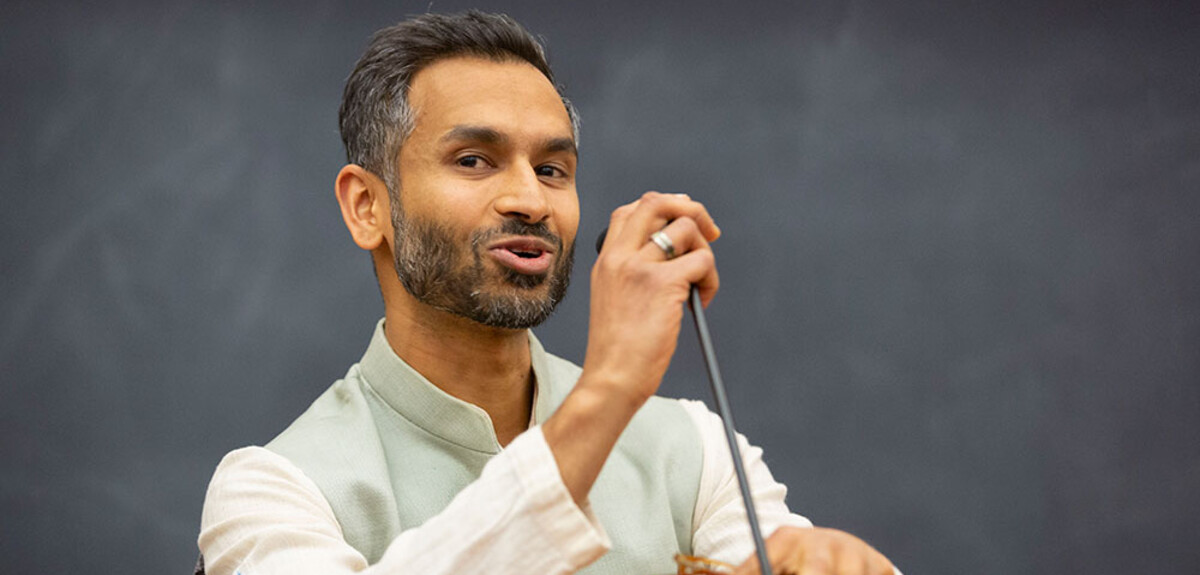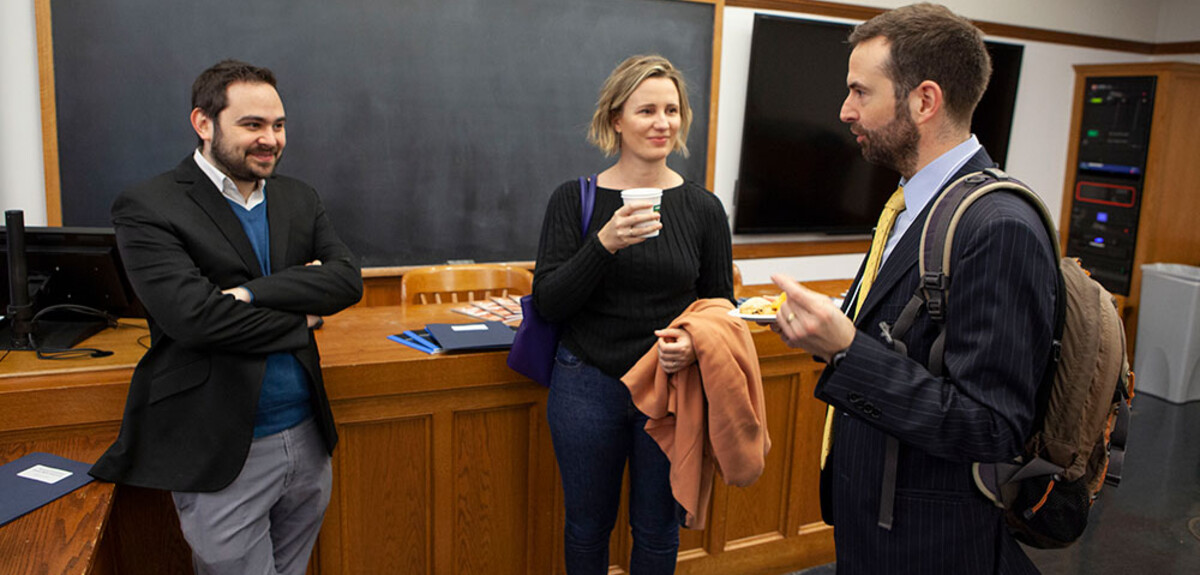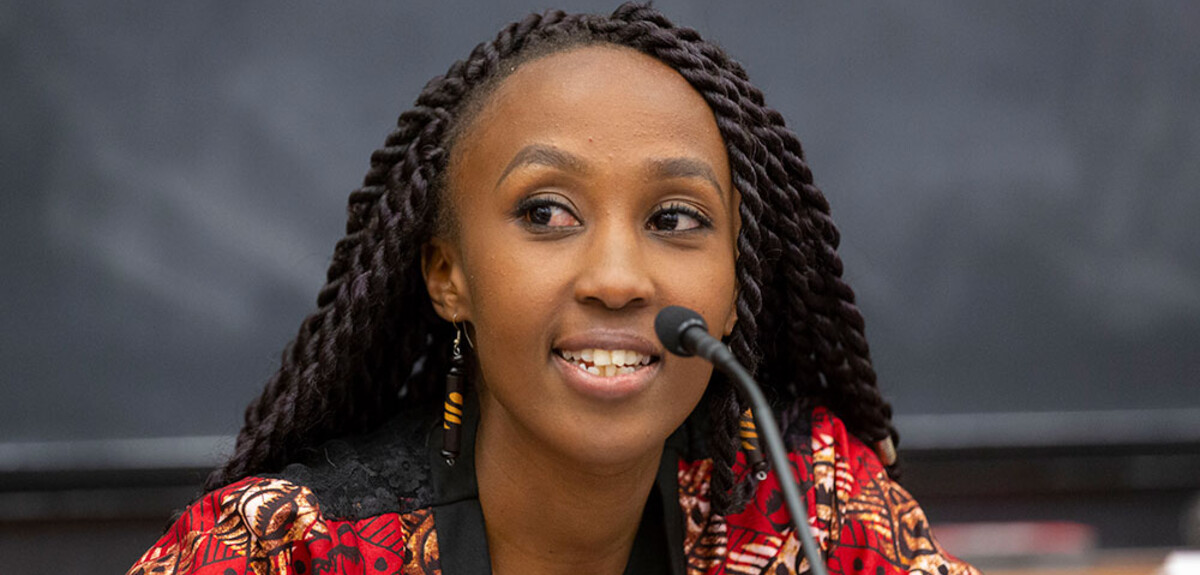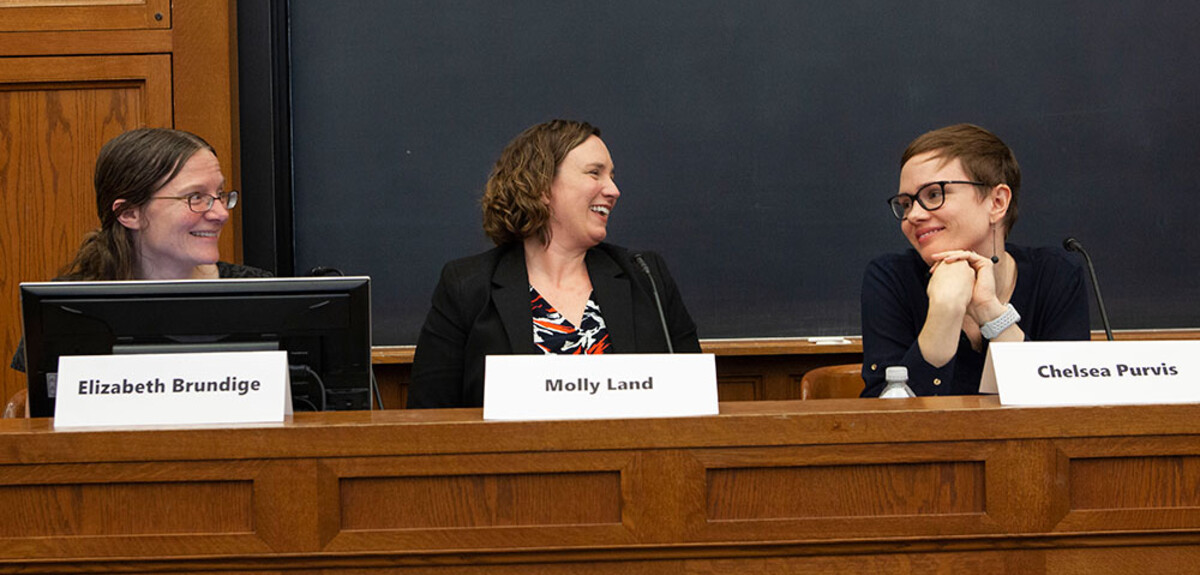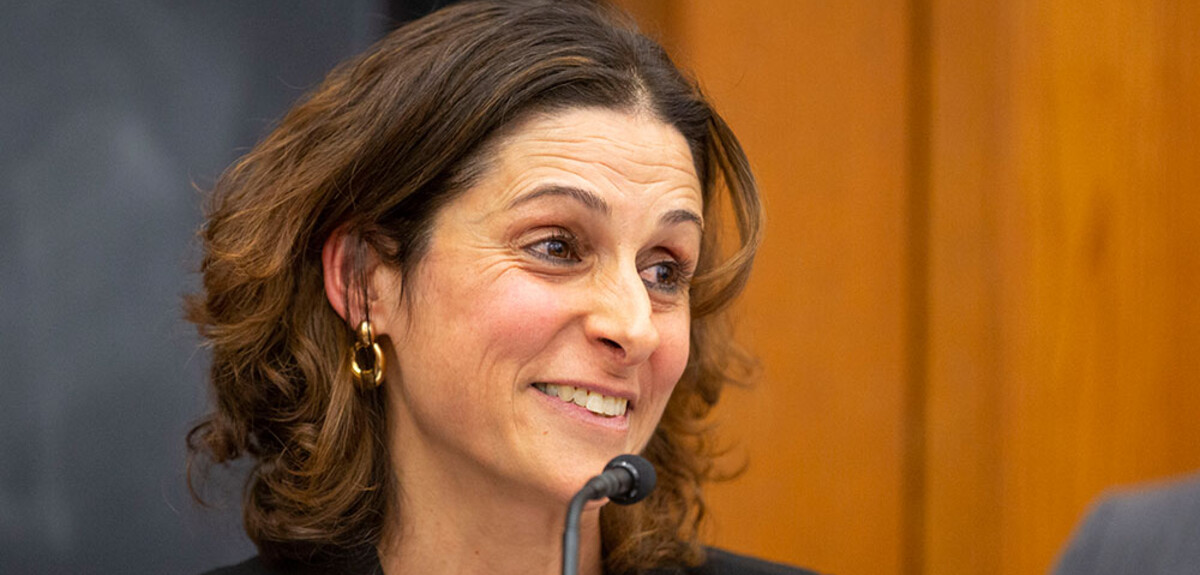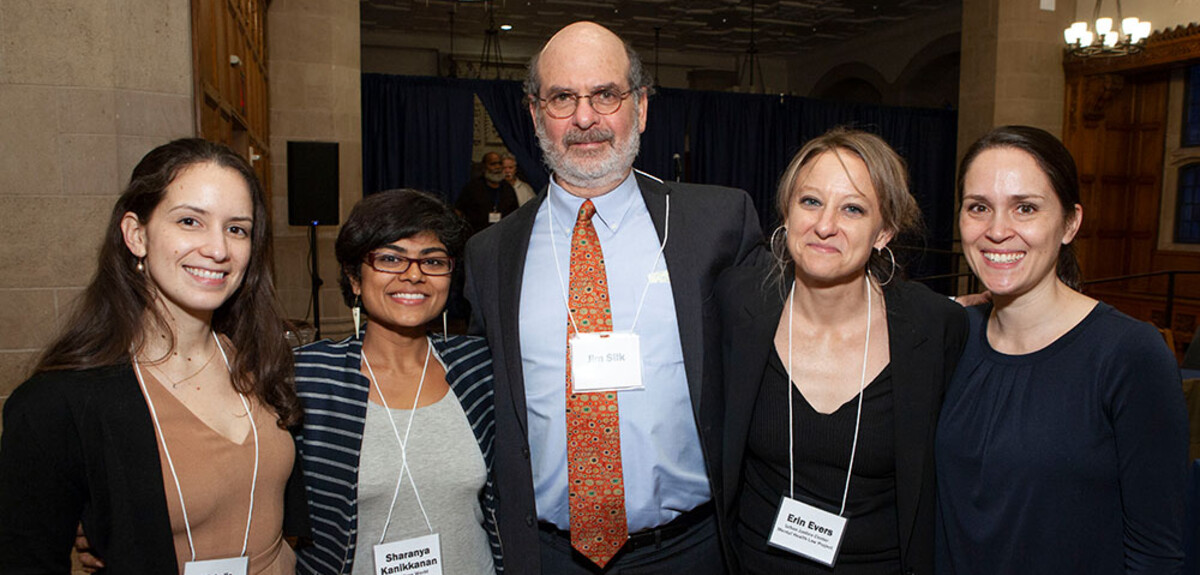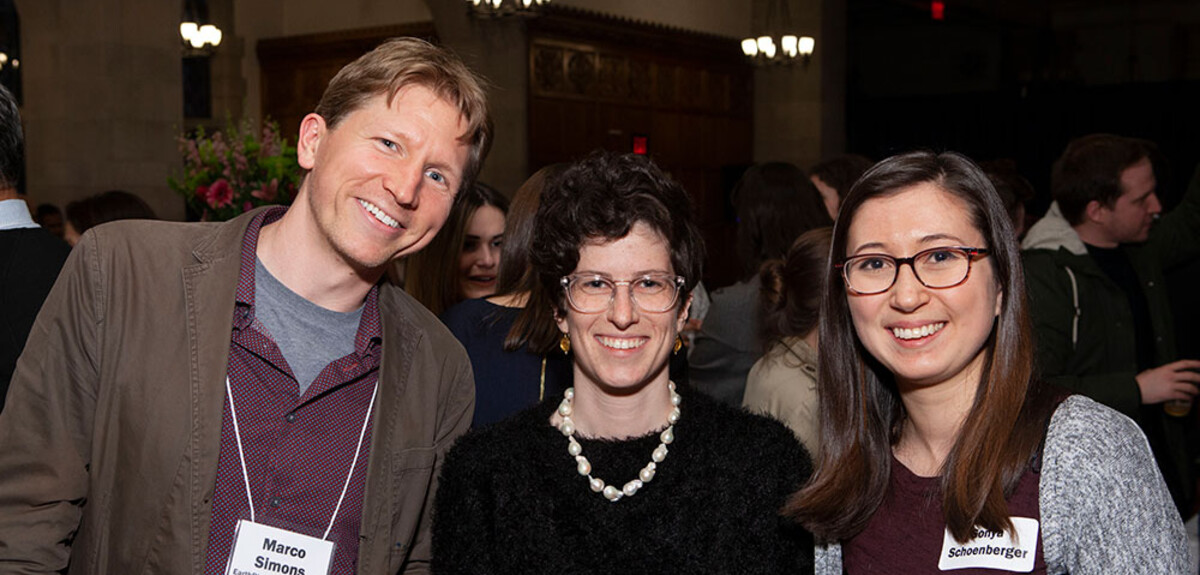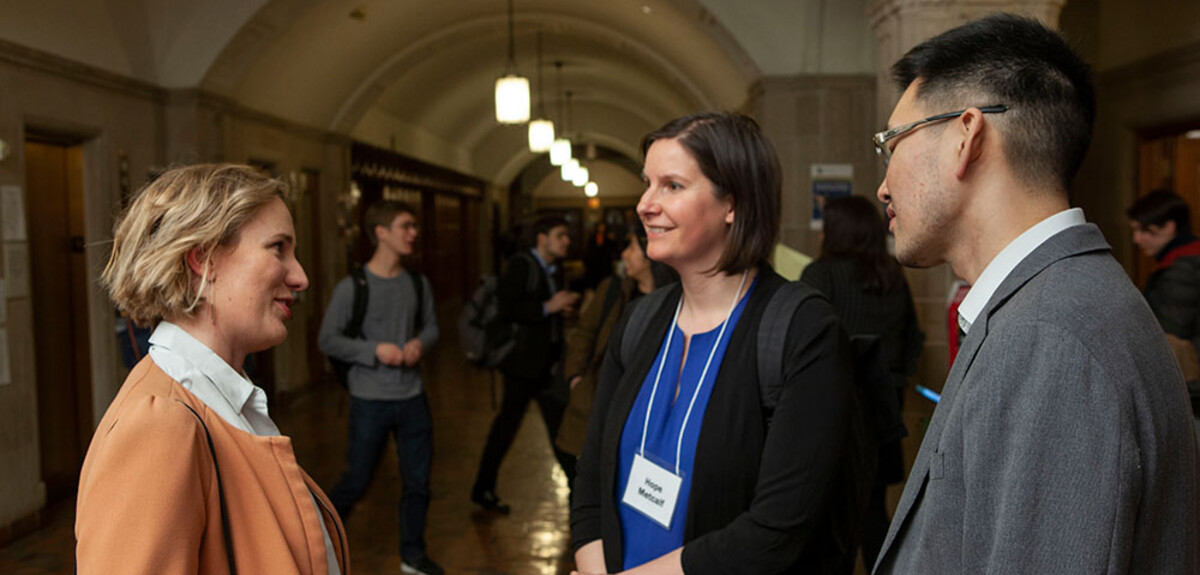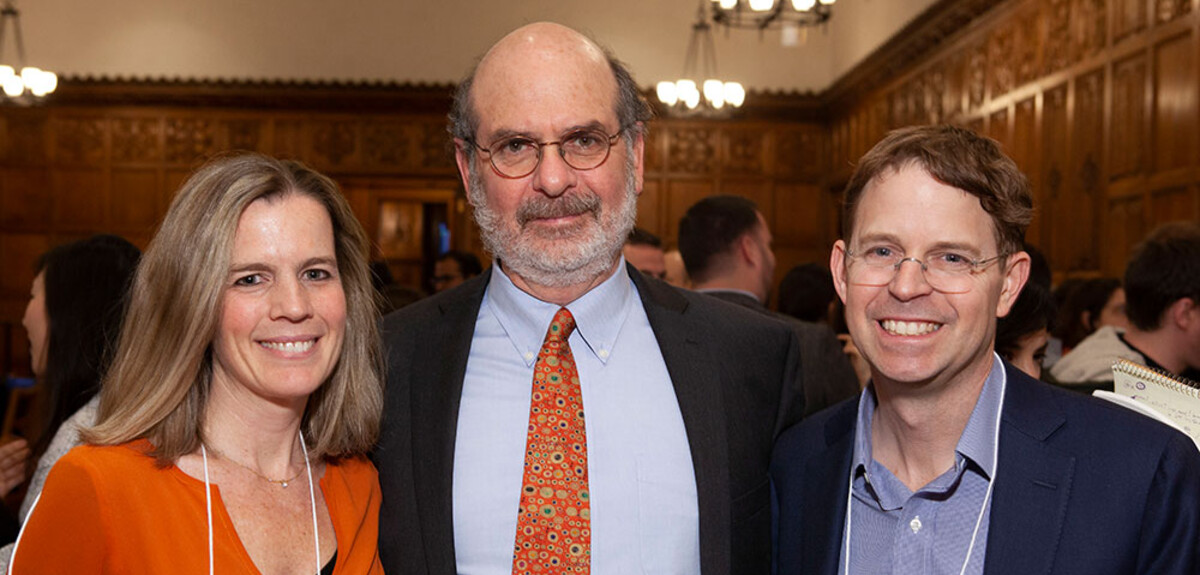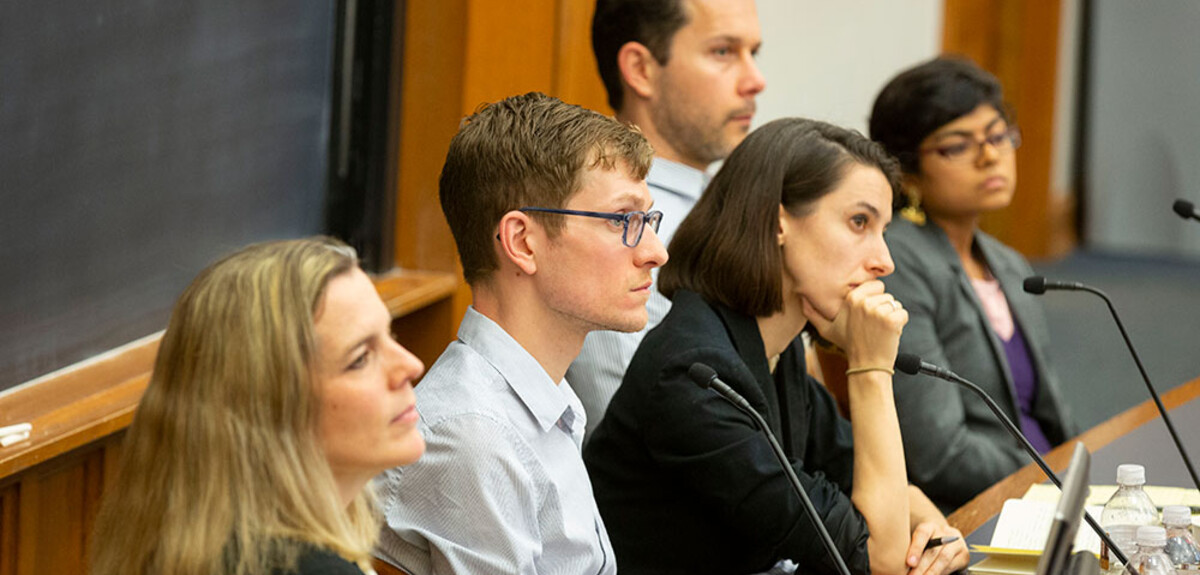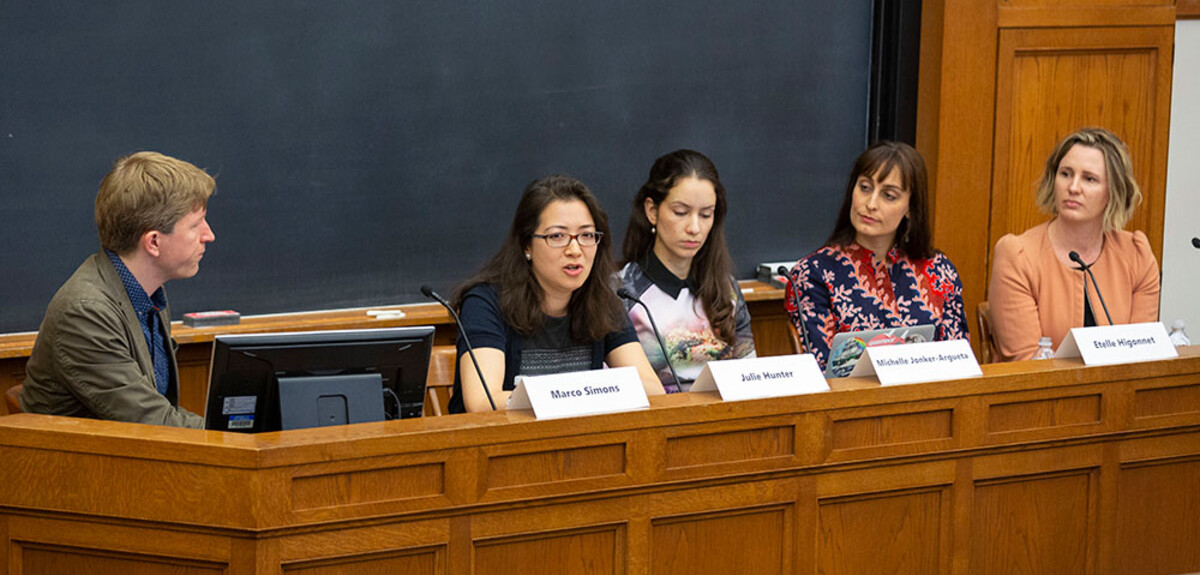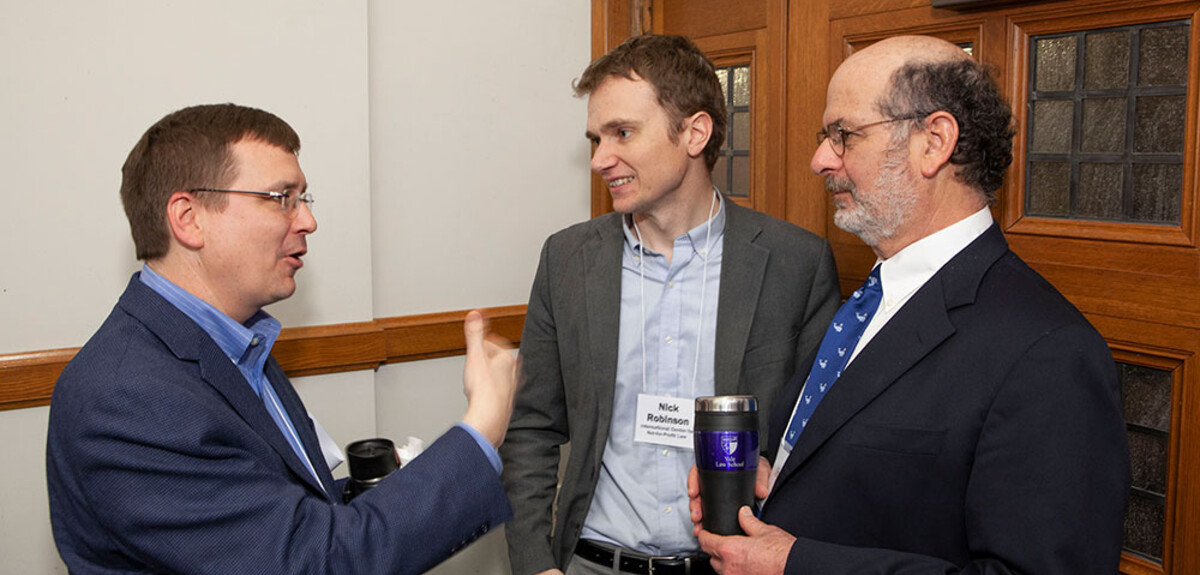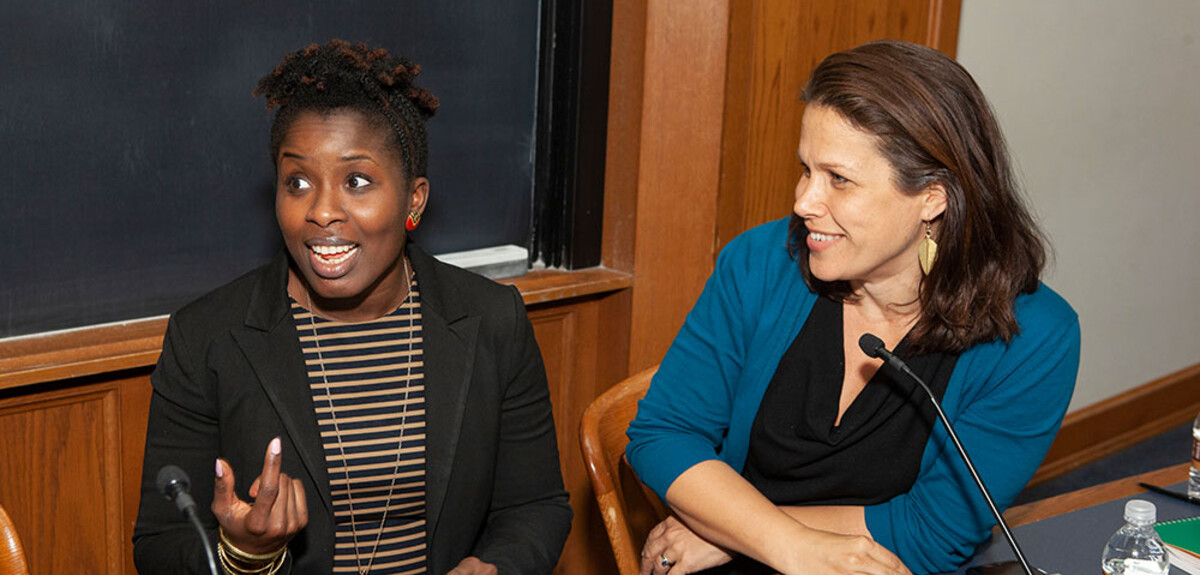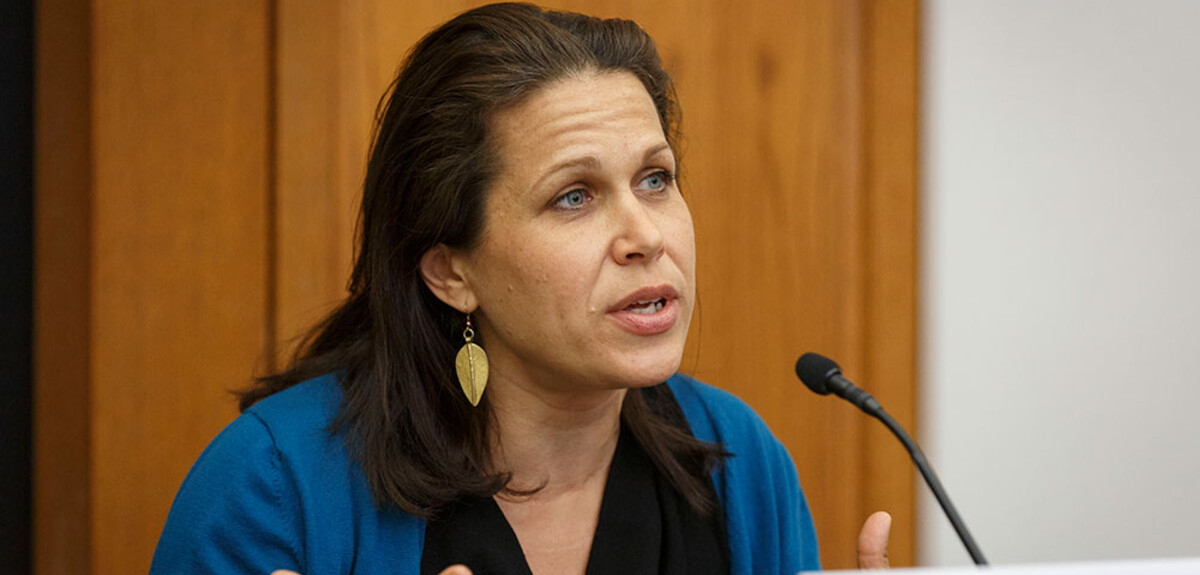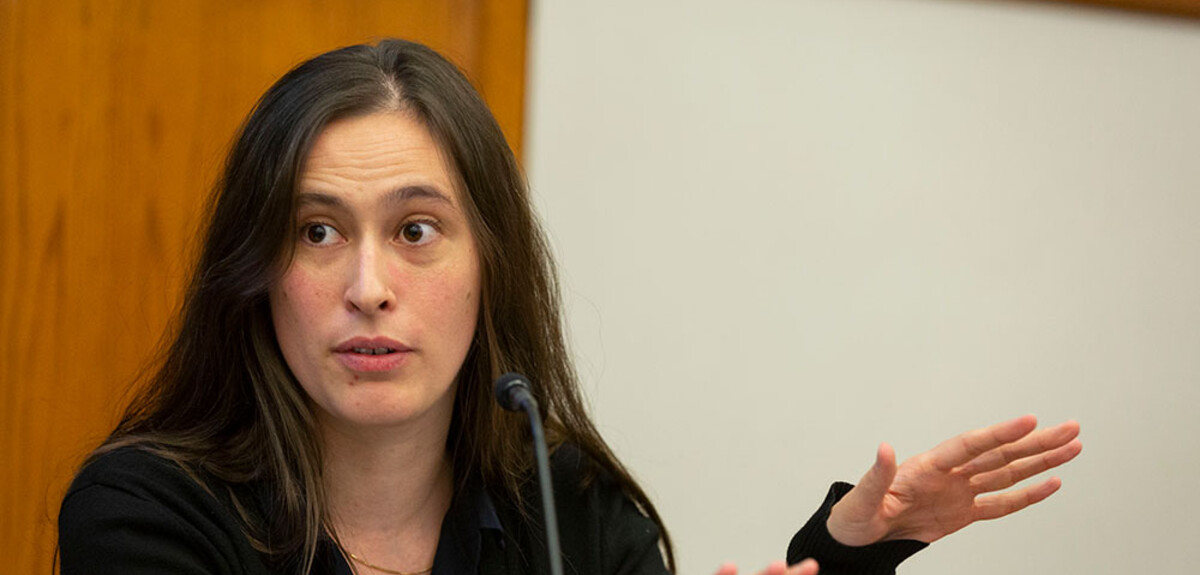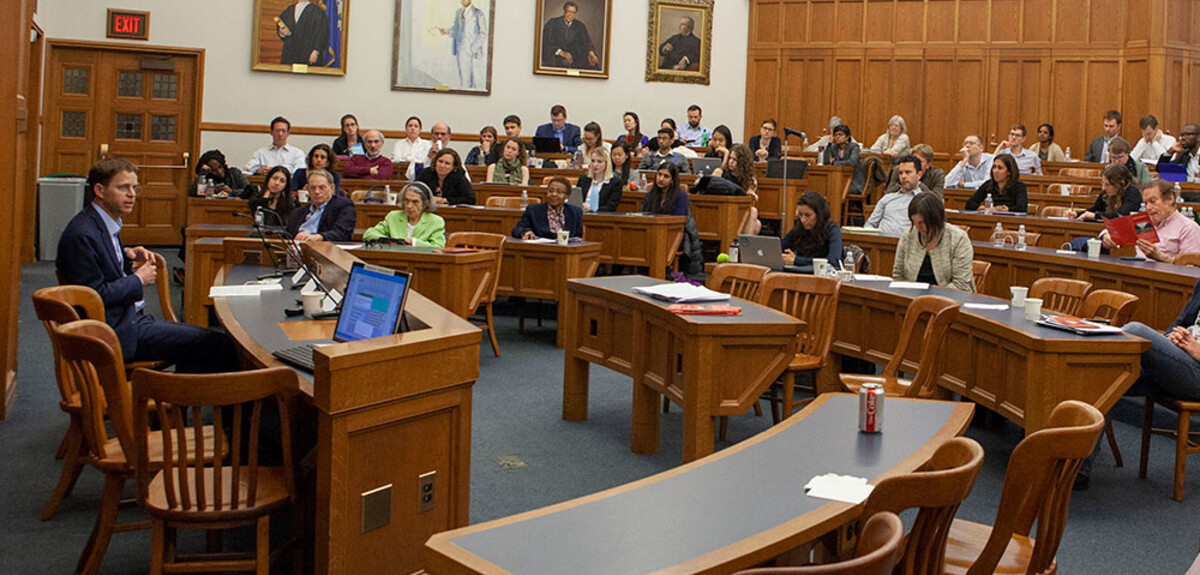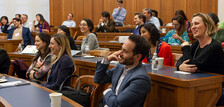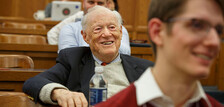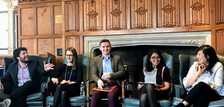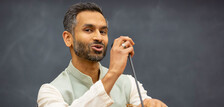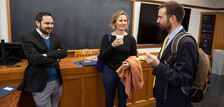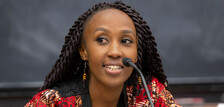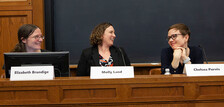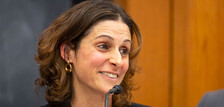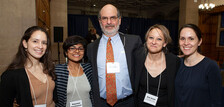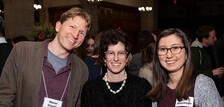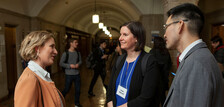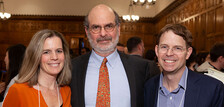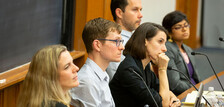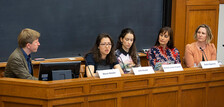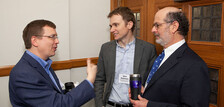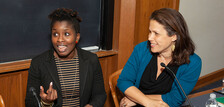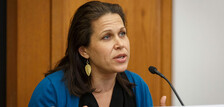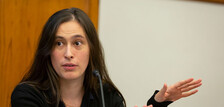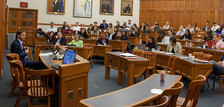Art and International Human Rights
Robert L. Bernstein International Human Rights Symposium
and JUNCTURE: Explorations in Art and Human Rights
Orville H. Schell, Jr. Center for International Human Rights
Yale Law School
April 7-8, 2016
This year’s symposium is part of JUNCTURE: Explorations in Art and Human Rights, a new initiative sponsored by the Schell Center. The symposium will feature conversations with the visiting artists who, as part of JUNCTURE, are collaborating with Yale law and graduate students on creative projects. The symposium will also include conversations with international artists, advocates, and curators whose work engages directly with timely human rights issues.
Thursday
10:30am–12:00pm Yale University Art Gallery, Close-Looking Sessions
With emphasis on several well-known works from the Art Gallery’s permanent collection (e.g., photojournalistic images from the Vietnam War, works by South African artist William Kentridge), we will facilitate close-looking sessions that consider those images through the dual lenses of art and international human rights. Sessions will be co-led by Molleen Theodore, Assistant Curator of Programs at the Yale University Art Gallery.
Those interested should email juncture@yale.edu to RSVP.
12:30pm Faculty Lounge, Lunch
12:45–2:00pm, A View From Berlin: Artistic Responses to the “European Refugee Crisis”
Isabel Gahren and Cesy Leonard, Center for Political Beauty (Zentrum für Politische Schönheit), with David Kim ’17, Curator and Deputy Director, JUNCTURE
The Center for Political Beauty (Zentrum für Politische Schönheit), an artist collective based in Berlin, espouses an ideal of “aggressive humanism,” in which, according to the Center, art will “hurt, provoke, and rise in revolt.” Projects include the Federal Emergency Programme, in which the Center proposed to the German government a policy to take in Syrian refugees modeled on the Kindertransport, and the The Dead Are Coming, in which the Center exhumed the bodies of refugees from grave sites in Greece and Italy and then reburied the corpses in Germany. We will discuss specific works by the Center and the philosophies and politics that motivate its practice.
2:15–3:30pm, Telling Human Rights Stories Through Objects
Amalia Pica, JUNCTURE Visiting Artist, with David Kim
What is the relationship between empathy and human rights activism? How might we understand objects to “speak” or bear narratives? What is gained or lost by, say, telling stories of the war in Syria through an object, rather than through a portrait and personal narrative? What objects have come to be symbols of human rights (e.g., a machete, a life-jacket, a child’s shoe, or a poisonous mushroom), and what nuances might these icons obscure? What are the connections between visual portrayal, speech, and the dignification of individuals? How might telling histories of objects renew individuals’ attention to human rights issues?
3:30–4:00pm, Break
4:00–5:30pm, Keynote Address and Reading
Carolyn Forché, the author of four books of poetry, is known for coining the term “poetry of witness.” In the late 1970s, Forché received a John Simon Guggenheim Foundation Fellowship to work as a human rights advocate in El Salvador. Her experiences there compelled the poems in her second book, The Country Between Us (1982). Critics called the poems “acts of commitment: to concepts and persons, to responsibility, to action” and “a poetry of dissent from a poet outraged.” Forché edited the volume Against Forgetting: Twentieth-Century Poetry of Witness (1993), which collected the work of poets who had written in war, exile, and imprisonment and, in one critic’s words, showed “the human ability to record, to write, to speak in the face of those atrocities.” In 1997, Forché received the Edita and Ira Morris Hiroshima Foundation Award for using her poetry as a “means to attain understanding, reconciliation, and peace within communities and between communities.”
5:30–6:30pm, Reception
�
Friday
10:00–11:20am, A Conversation with Current Bernstein and Robina Foundation Human Rights Fellows
Bernstein Fellows: Allana Kembabazi ’15, Initiative for Social and Economic Rights, Uganda; Ryan Thoreson ’14, LGBT Rights Program, Human Rights Watch, New York
Robina Fellows: Joshua Andresen ’15, U.N. Affairs, Office of the Legal Advisor, U.S. Department of State, Washington, D.C.; Julia Brower ’14, Office of the U.S. Mission to the United Nations, Washington, D.C.; Lani Inverarity LLM’15, Accountability Counsel, San Francisco
11:20am–12:00pm, Photography in the Work of Yale Law School Human Rights Fellows
Megan McCormack ’14, Robina Fellow, Independent Research, Kyrgyz and Tajik Republics, and Sharanya Kanikkannan ’11, Bernstein Fellow, Bureau des Avocats Internationaux, Haiti
12:00–12:45pm, Lunch
12:45–2:00pm, Form, Drama, and Justice
Dipika Guha, JUNCTURE Visiting Artist, with Caroline Levine, Professor of English, University of Wisconsin-Madison
Contemporary American theater privileges naturalism, while human rights advocacy relies often on testimonial modes, whether visual or verbal. How do these forms operate? What conceptions of authenticity, sincerity, recognition, and public discourse underlie them? How might these forms or others realize new ethical possibilities? How might dramatic forms contribute to the creation of nomos and interpretive repertoires, as described by Robert Cover? What is the relationship between narrative and justice? What work—what effort—does theater require of its audiences, and how might such work relate to the development of shared ethical and political commitments? Professor Levine will also offer a short presentation of her work.
2:10–3:25pm, A View From Cairo: Freedom of Expression, Institution-Building, and Activism
Sara El Adl, Assistant Curator, Townhouse Gallery, Cairo, Egypt, with Aisha Saad ’18, Assistant Professor of Public Policy, American University in Cairo, 2013-15
What pressures currently bear on artists and art institutions in Egypt (e.g., increasing state censorship, funding restrictions, and forced closures)? How have these pressures changed since the 2011 uprising? How have art institutions developed sustainable practices under these conditions, and what role have artists played in creating alternative forms of organization? How, if at all, can artists be activists? That is, what agency can artists exert in human rights movements and politics? And how might art create new conceptions of public space and public discourse?
3:35–4:50pm, Black Sites, the Archive, and Artistic Intervention
Chitra Ganesh and Mariam Ghani, JUNCTURE Visiting Artists, with Alexis Agathocleous, Deputy Legal Director, Center for Constitutional Rights; Ramzi Kassem, Associate Professor of Law, City University of New York; and Hope Metcalf, Clinical Lecturer in Law and Executive Director, Orville H. Schell, Jr. Center for International Human Rights
Index of the Disappeared is both a physical archive of post-9/11 disappearances—detentions, deportations, renditions, redactions—and a platform for public dialogue around related issues. How has the archive been useful in advocacy? How might the project illuminate linkages between black sites abroad and mass incarceration in the United States? What insights result from conceptualizing this (or any project with strong activist goals) as artistic practice? How, if at all, has the cultural, institutional, and intellectual position of the “artist” uniquely enabled the development and deployment of this archive?
5:00–6:30pm, Town Hall Discussion: The Concept of Efficacy in Art
Presenter: Sharon Sliwinski, Associate Professor in the Faculty of Information and Media Studies, University of Western Ontario
Discussants: Isabel Gahren, Chitra Ganesh, Mariam Ghani, Dipika Guha, David Kim, Cesy Leonard, Caroline Levine, and Amalia Pica
Moderator: James Silk, Director, JUNCTURE; Clinical Professor of Law; Director, Schell Center for International Human Rights, Yale Law School
This culminating conversation will consider how art might serve human rights advocacy purposes. How can we conceptualize the “efficacy” of an artwork or artistic intervention? Efficacy in achieving what ends? Awareness, empathy, action? How would we measure efficacy at the level of the individual, group, or state? How might paradigms of efficacy differ across specific historical, political, and legal contexts? How do these paradigms relate to the formal and aesthetic goals of an artist or an artistic movement?
6:30–7:15pm, Reception
